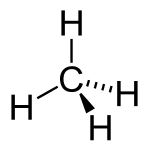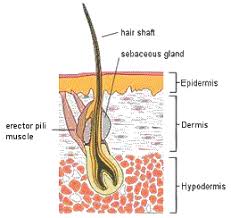Word Bank
carbon, element, chemical, neutrons, electrons, protons, metals, light energy, ATP
carbon, element, chemical, neutrons, electrons, protons, metals, light energy, ATP
release energy,
phototropism, thigmotropism
1.
Atoms are made up of __________________,
______________ & _________________.
2. The nucleus of an
atom is made up of __________________ & _________________
3. Atoms combine using ___________________
bonds
4. A pure substance that cannot be
separated into simpler substance by physical or
chemical means is called an ___________________
chemical means is called an ___________________
5. Organic
compounds contain ____________________



6. Inorganic compounds contain ____________________.
8. During photosynthesis, chlorophyll absorbs
_____________________.
|
|
|
|
|
|
|
|
|
9. During cellular respiration,
your body breaks down glucose and releases ______________ in the mitochondria, the organelle knwon as the POWERHOUSE
10. In
which part of a plant does photosynthesis take place?
11. Which growth response allows plant
tendrils (vines) to wrap around an object?
|
|
|
|
|
12. A
plant growing in response to light is called ___________________________________
|
|
|
|
|
|
13.
What is the purpose of cellular respiration?
|
|
|
|
|
|
Page 2 Word bank
oxygen, carbon dioxide, physical, chemical, ball and socket joint, hinge joint, phalanges, smooth, heart, involuntary, voluntary, cardiac, skeletal, tendons,
oxygen, carbon dioxide, physical, chemical, ball and socket joint, hinge joint, phalanges, smooth, heart, involuntary, voluntary, cardiac, skeletal, tendons,
14. Which of the following is NOT part of the
respiratory system?
|
a.
|
pharynx
|
c.
|
trachea
|
|
b.
|
ventricle
|
d.
|
Bronchus
|
15. When we breathe, we
inhale oxygen and exhale ___________________.
16. Breathing is a ___________ process and
respiration is a ____________ process.
17. The primary function of the respiratory system is to supply the blood with __________________ in order for the blood to deliver it to all parts of the body.
18. Which of the following is NOT part of the skeletal system?
17. The primary function of the respiratory system is to supply the blood with __________________ in order for the blood to deliver it to all parts of the body.
18. Which of the following is NOT part of the skeletal system?
|
a.
|
bones
|
c.
|
liver
|
|
b.
|
joints
|
d.
|
cartilage
|
19. Which
of the following is NOT a function of the skeletal system?
|
a.
|
movement
|
c.
|
stores nutrients
|
|
b.
|
support
|
d.
|
produces glucose
|
20. What kind of joints are the hips and
shoulders? ______________________
|
|
|
|
|
|
|
|
|
|
|
|
|
|
|
|
|
|
|
22. What kind of bones are the toes and
fingers? __________________________
23. Name
the 3 types of muscles _________________________________________
24. Skeletal muscles are ____________, while
smooth and cardiac muscles are ______________
|
|
|
|
|
|
|
|
|
|
25.
Cardiac muscles move the ____________________.
26.
Muscles are attached to bones by thick bands of tissue called ___________________
T = MBL = BB
|
|
|
|
26. The outer layer of the skin, mostly dead
cells, is called the ___________________.
|
|
|
|
|
|
|
|
|
|
27. Blood vessels and nerves are located in
the middle layer of the skin, the ________________.

28. _____________ is a pigment that protects
your skin and gives it color.
|
|
|
|
|
|
|
|
|
|
29. Which
is NOT a function of the Integumentary system?
|
a.
|
protection
|
c.
|
regulating body temperature
|
|
b.
|
production of vitamin D
|
d.
|
oxygen delivery
|
30. _____________ is one way your skin
regulates your body’s temperature.
|
|
|
|
|
|
|
|
|
|
What
does CTOOO stand for?
C
_________________________T _________________________
O _________________________
O _________________________
O _________________________
Extra
credit:
What
does the following equation represent? _________________________________
Carbon
dioxide + water + light energy = glucose & oxygen
6CO2
+ 6H2O + light energy = C6H12O6 + 6
O2


0 comments:
Post a Comment